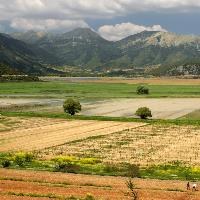(BRUSSELS) – The EU Commission launched Tuesday a public consultation on a new EU Soil Strategy, the last of a set of consultations on different ecosystems forming part of the EU Biodiversity Strategy.
Healthy soils produce food and raw materials, clean drinking water, reduce flood risks and store huge amounts of carbon. They are seen as essential for achieving the objectives of the ‘European Green Deal’ such as climate neutrality, biodiversity restoration, zero pollution, healthy and sustainable food systems and a resilient environment. Yet soils are degrading due to unsustainable management, overexploitation, climate change and pollution. For that reason, the EU Biodiversity Strategy for 2030 announced the adoption of a new Soil Strategy in 2021.
Environment Commissioner Virginijus Sinkevicius underlined the importance of the strategy for Europe’s food and future: “We must equip the European Union with a robust soil policy that will allow us to reach our ambitious climate, biodiversity and food security goals, and step up our efforts to manage soil in a way that it can deliver for people, biodiversity and climate,” he said.
The aim of the new EU Soil Strategy will be to address soil- and land-related issues in a comprehensive way and to help achieve land degradation neutrality by 2030, one of the key targets of the Sustainable Development Goals (SDGs). It will look into how to protect soil fertility, reduce erosion and increase soil organic matter. The strategy will consider challenges such as identifying contaminated sites, restoring degraded soils, defining the conditions for their good ecological status and improving the monitoring of soil quality.
Through this public consultation, the Commission is inviting citizens and organisations to contribute to the preparation of the new EU Soil Strategy and share their views on potential objectives and actions. It will remain open for feedback for 12 weeks until 27 April 2021.



